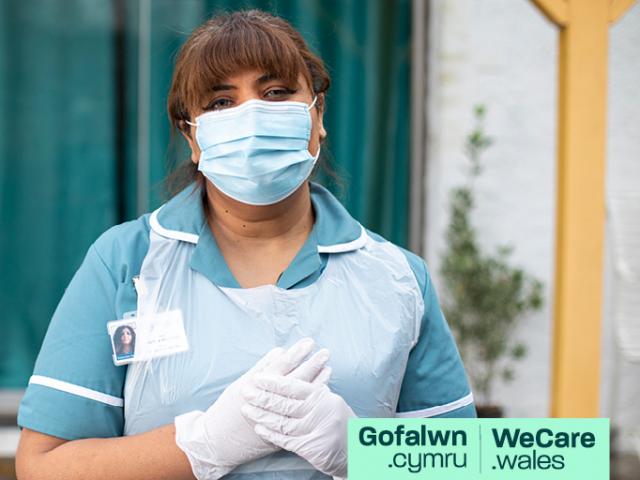
New COVID-19 social care study possible due to data from Social Care Wales
9 March
The study will be the first to look at the risk COVID-19 poses to the care workers who support people at home in Wales. It has been made possible due to the quality and quantity of registered workforce data that Social Care Wales hold.
Sharing this data with the internationally recognised Secure Anonymised Information Linkage (SAIL) Databank, funded by Health and Care Research Wales, is an important step forward to not only benefit the social care workforce, but public health in Wales as a whole.
The pandemic is thought to have had a major impact on the health of the 20,000 workers who offer personal care and support to the elderly or people with life-limiting conditions in their own homes.
The study, called Outcomes for Social Carers: an Analysis using Routine data (OSCAR) and funded by UK Research and Innovation, will assess the health of public and private care workers, including COVID-19 infection, mental health and other illnesses. The researchers will combine routine health data and interviews with care workers who support people in their own homes to build an overall picture of how these workers have fared during the pandemic.
The 18-month study will quantify suspected and confirmed cases of COVID-19 infection and its impact on health, including mortality. It will also compare trends in mental health and other respiratory illnesses pre- and post-pandemic.
Lisa Trigg, Assistant Director of Research, Data and Intelligence at Social Care Wales, said: “Our main motivation for sharing data with the SAIL Databank is to understand how to provide the best support for our social care workforce in Wales. We’re delighted that this first study from Cardiff University is focused on understanding the health and wellbeing on home care workers during the pandemic. This group of workers has been pivotal to keeping our communities going, but this has also taken its toll. Understanding more about the true impact of COVID-19 of workers from all parts of Wales should allow us to identify and plan ways we can provide better support.”
Thirty care workers will be interviewed about their experiences, including questions about personal protective equipment and any concerns over working practices or what they are being asked to do. The study will hopefully provide some quick findings to help inform public health decisions on safer working practices and additional support for staff in Wales and other parts of the other UK. The hope is to build a model that shows which areas of our workforce are most at risk of being impacted by COVID-19 by analysing factors such as age, ethnicity, underlying health conditions or other socio-economic and demographic factors.
The SAIL Databank already holds data of various kinds about the population of Wales, currently holding over 10 billion person-based data records including GP records, hospital admission records, and education data. Now, the registered social care workforce is also a part of this vast databank.
The aim of the SAIL Databank is to provide anonymised population data to enable important research projects that lead to enhanced patient care, public benefit and improvements in health, care and well-being. This rich dataset will enable researchers to carry out important studies that can help us learn lessons and make better decisions on important issues.
The study will be led by Cardiff University in partnership with Public Health Wales and Swansea University.
For more information regarding the OSCAR Study please visit the Cardiff University website or the Centre for Open Science website
For more information on the registered workforce data please email Social Care Wales.